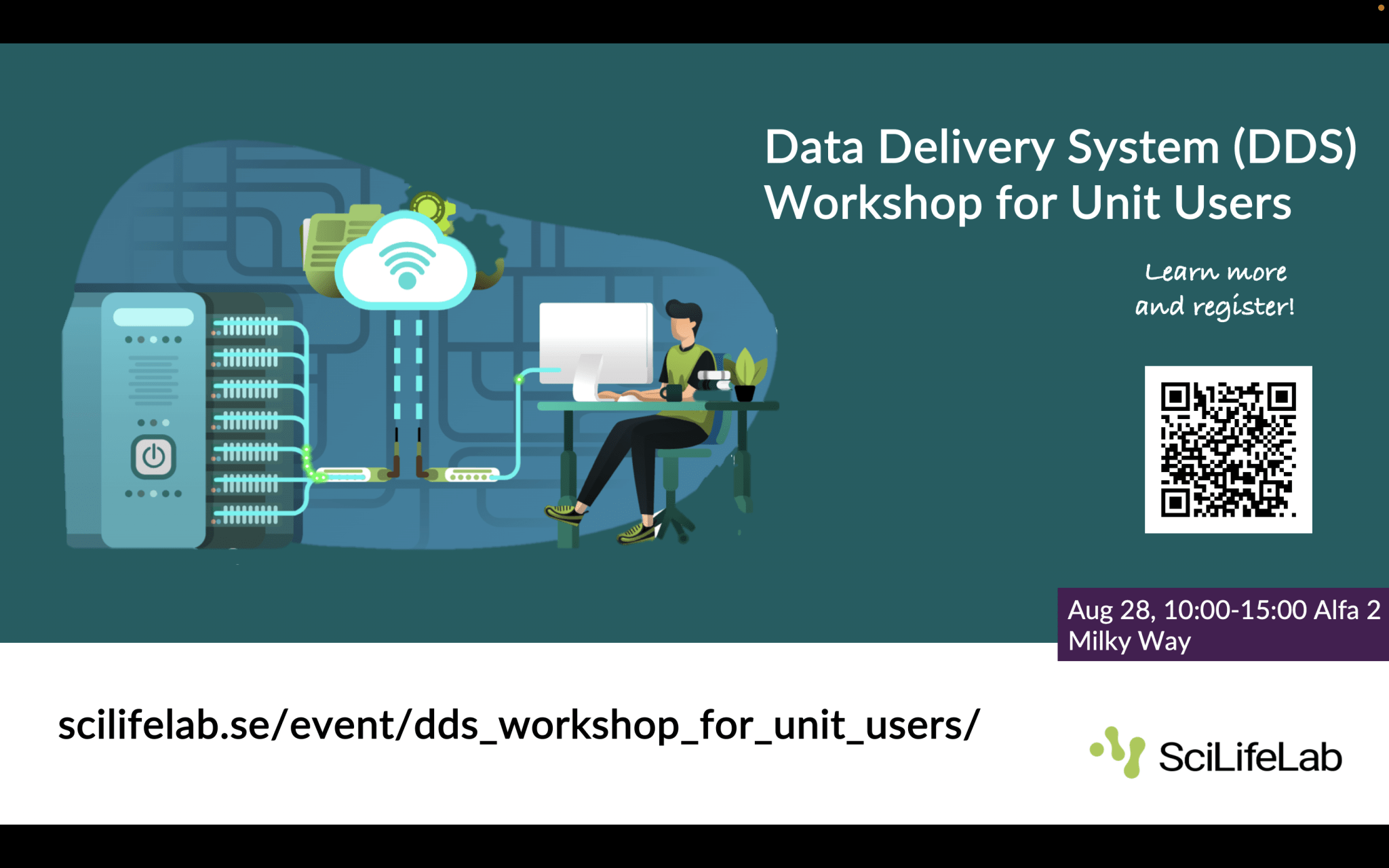ELIXIR Omics Integration and Systems Biology – Online
September 6 @ 08:00 – September 10 @ 17:00 CEST
The National Bioinformatics Infrastructure Sweden (NBIS) / ELIXIR Sweden is pleased to announce the workshop in Omics Integration and Systems Biology. This workshop is open for PhD students, postdocs, group leaders and core unit staff from European institutions looking for an introduction to multi-omics integration and systems biology approaches.
This workshop will include lectures and hands-on exercises from NBIS / Scilifelab experts from Stockholm, Lund and Gothenburg, as well as guest sessions from:
- Ricard Argelaguet, PhD, Babraham Institute, United Kingdom
- Kim-Anh Lê Cao, PhD, Melbourne University, Australia
- Pedro Beltrao, PhD, EMBL-EBI, United Kingdom
- Nikolaus Sonnenschein, PhD, DTU Technical University of Denmark, Denmark
More information to come on the course website.
Important Dates
- Application opens: 3 June
- Application closes: 9 August
- Confirmation to accepted students: 16 August
Fee
This online training event has no fee. However, if you accept a position at the workshop and do not participate (no-show) you will be invoiced 2000 SEK.
* Please note that NBIS cannot invoice individuals.
Content
The aim of this workshop is to provide an integrated view of data-driven hypothesis generation through biological network analysis, constraint-based modelling, and supervised and unsupervised integration methods. A general description of different methods for analysing different omics data (e.g. transcriptomics and genomics) will be presented with some of the lectures discussing key methods and pitfalls in their integration. The techniques will be discussed in terms of their rationale and applicability. The course will also include hands-on sessions and several seminars by invited speakers.
Some of the covered topics include:
- Data pre-processing and cleaning prior to integration
- Application of key machine learning methods for multi-omics analysis including deep learning
- Multi-omics integration, clustering and dimensionality reduction
- Biological network inference, community and topology analysis and visualization
- Condition-specific and personalized modeling through Genome-scale Metabolic models for integration of transcriptomic, proteomic, metabolomic and fluxomig data
- Identification of key biological functions and pathways
- Identification of potential biomarkers and targetable genes through modeling and biological network analysis
- Application of network approaches in meta-analyses
- Similarity network fusion and matrix factorization techniques
- Integrated data visualization techniques
Further details about the course content may be found on the course website.
Entry requirements
This is a course is open for PhD students, postdocs, group leaders and core unit staff from European institutions. Please note that NBIS training events do not provide any formal university credits. If formal credits are crucial, the student needs to confer with the home department before submitting a course application in order to establish whether the course is valid for formal credits or not.
Practical exercises can be performed using R or Python, so we only accept students with previous experience in one of those programming languages. We will not discuss how to process specific omics, and the students are referred to other NBIS courses for this matter.
Required:
- Basic knowledge in R or Python;
- Basic understanding of frequentist statistics;
- A computer with web camera, Zoom, and permissions for installing software.
Desirable:
- Experience with analysis of NGS and other omic data;
- Completing NBIS courses “Introduction to Bioinformatics using NGS data” and “Introduction to biostatistics and machine learning”
- Basic conda and git knowledge
This workshop can accommodate a maximum of 25 participants. If we receive more applications, participants will be selected based on several criteria including entry requirements, motivation to attend the course as well as gender and geographical balance.
Contact information
For questions about this workshop please contact: edu.omics-integration@nbis.se

